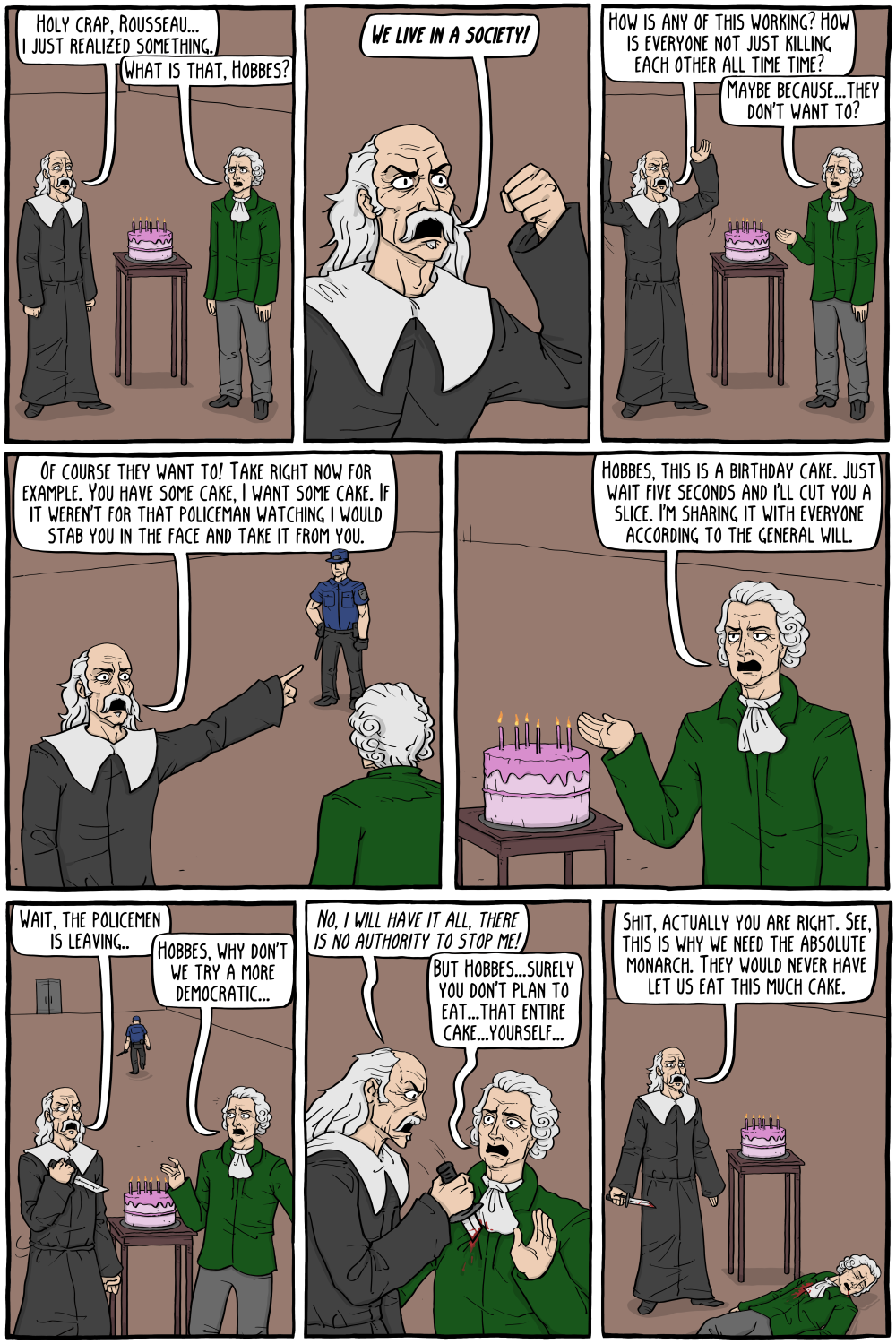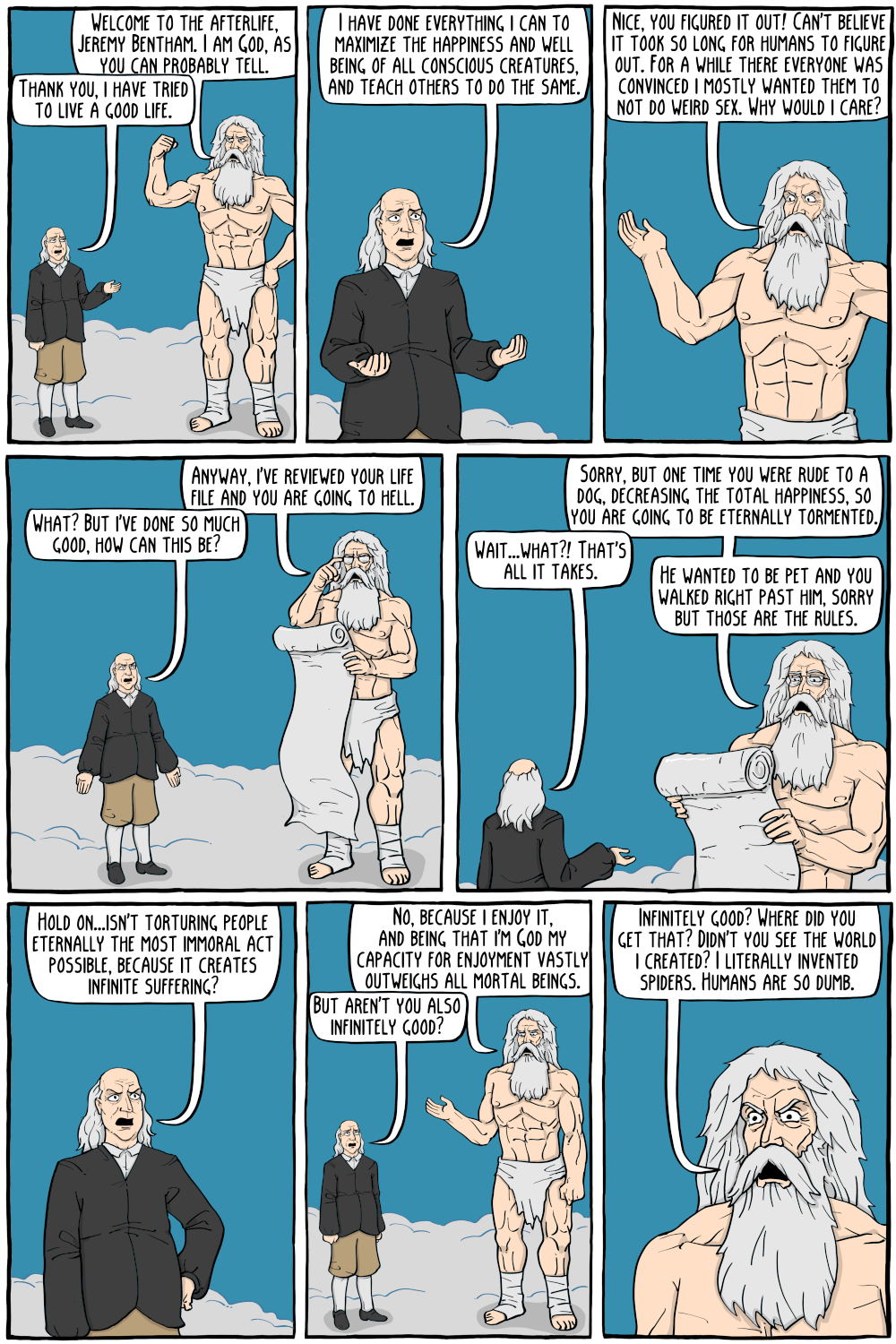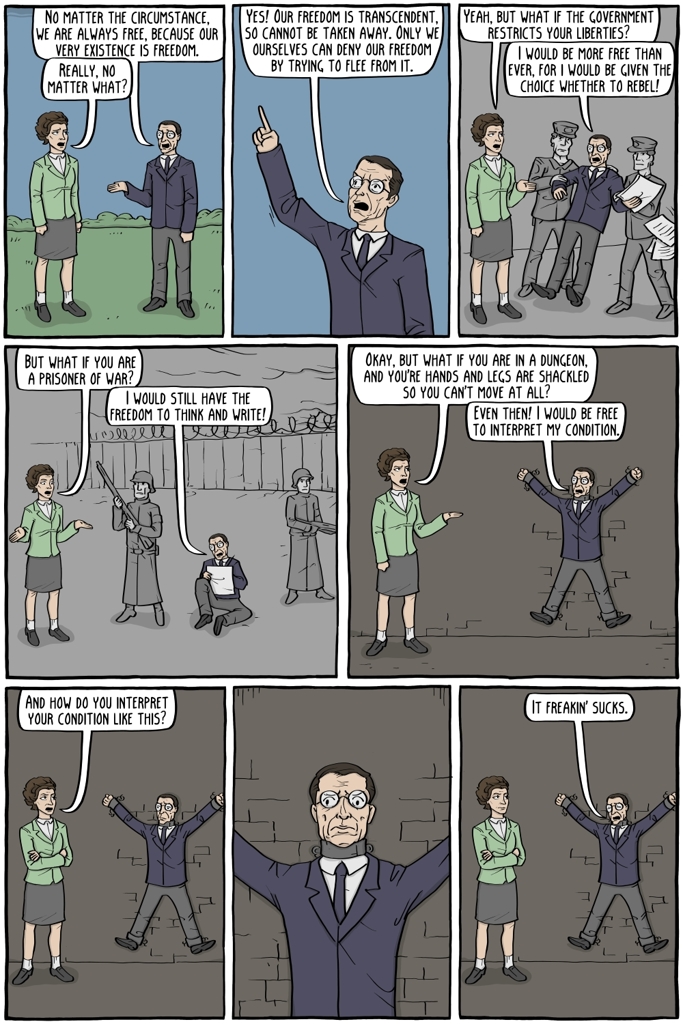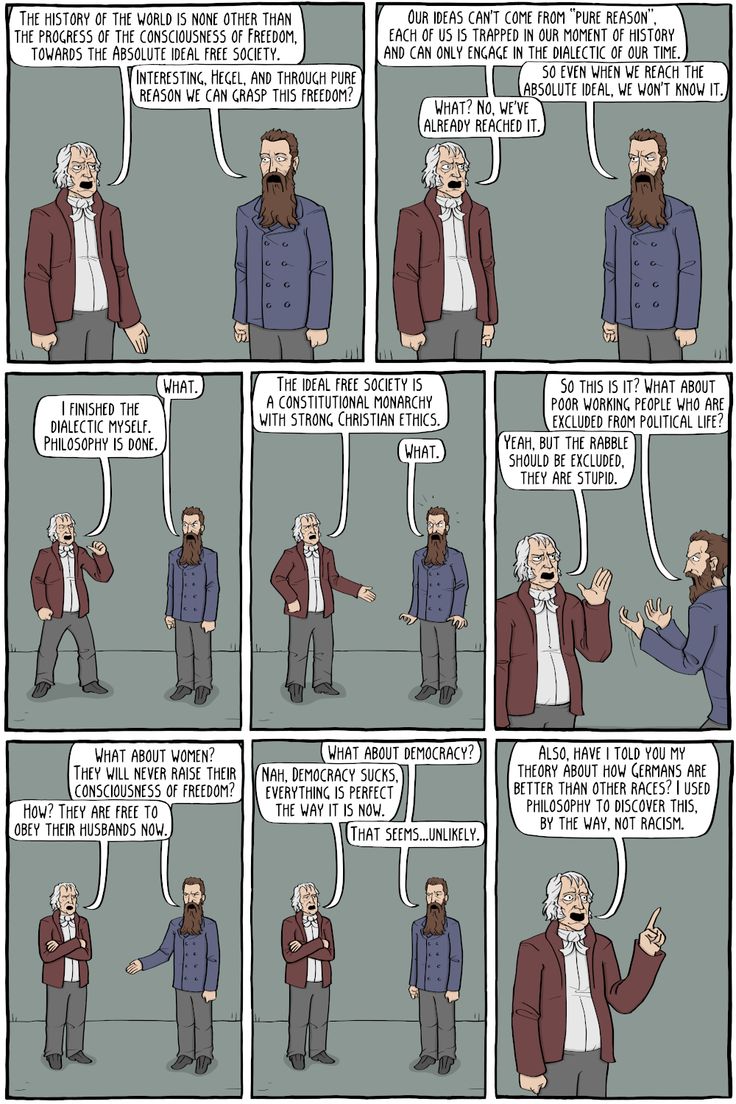A coin has it stamped upon its body that it is to serve as a means of exchange and not as an object of use. Its weight and metallic purity are guaranteed by the issuing authority so that, if by the wear and tear of circulation it has lost in weight, full replacement is provided. Its physical matter has visibly become a mere carrier of its social function.
If, then, the ‘real abstraction’ has nothing to do with the level of ‘reality’, of the effective properties, of an object, it would be wrong for that reason to conceive of it as a ‘thought-abstraction’, as a process taking place in the ‘interior’ of the thinking subject: in relation to this ‘interior’, the abstraction appertaining to the act of exchange is in an irreducible way external, decentred – or, to quote Sohn-Rethel’s concise formulation: ‘The exchange abstraction is not thought, but it has the form of thought.’
Here we have one of the possible definitions of the unconscious: the form of thought whose ontological status is not that of thought, that is to say, the form of thought external to the thought itself – in short, some Other Scene external to the thought whereby the form of the thought is already articulated in advance. The symbolic order is precisely such a formal order which supplements and/or disrupts the dual relationship of ‘external’ factual reality and ‘internal’ subjective experience; Sohn-Rethel is thus quite justified in his criticism of Althusser, who conceives abstraction as a process taking place entirely in the domain of knowledge and refuses for that reason the category of ‘real abstraction’ as the expression of an ‘epistemological confusion’. The ‘real abstraction’ is unthinkable in the frame of the fundamental Althusserian epistemological distinction between the ‘real object’ and the ‘object of knowledge’ in so far as it introduces a third element which subverts the very field of this distinction: the form of the thought previous and external to the thought – in short: the symbolic order.
:zizek-ok: We are now able to formulate precisely the ‘scandalous’ nature of Sohn-Rethel’s undertaking for philosophical reflection: he has confronted the closed circle of philosophical reflection with an external place where its form is already ‘staged’. Philosophical reflection is thus subjected to an uncanny experience similar to the one summarized by the old oriental formula ‘thou art that’: there, in the external effectivity of the exchange process, is your proper place; there is the theatre in which your truth was performed before you took cognizance of it. The confrontation with this place is unbearable because philosophy as such is defined by its blindness to this place: it cannot take it into consideration without dissolving itself, without losing its consistency.
This does not mean, on the other hand, that everyday ‘practical’ consciousness, as opposed to the philosophical-theoretical one – the consciousness of the individuals partaking in the act of exchange – is not also subjected to a complementary blindness. During the act of exchange, individuals proceed as ‘practical solipsists’, they misrecognize the socio-synthetic function of exchange: that is the level of the ‘real abstraction’ as the form of socialization of private production through the medium of the market: ‘What the commodity owners do in an exchange relation is practical solipsism – irrespective of what they think and say about it’. Such a misrecognition is the sine qua non of the effectuation of an act of exchange – if the participants were to take note of the dimension of ‘real abstraction’, the ‘effective’ act of exchange itself would no longer be possible:
Thus, in speaking of the abstractness of exchange we must be careful not to apply the term to the consciousness of the exchange agents. They are supposed to be occupied with the use of the commodities they see, but occupied in their imagination only. It is the action of exchange, and the action alone, that is abstract … the abstractness of that action cannot be noted when it happens because the consciousness of its agents is taken up with their business and with the empirical appearance of things which pertain to their use. One could say that the abstractness of their action is beyond realization by the actors because their very consciousness stands in the way. Were the abstractness to catch their minds their action would cease to be exchange and the abstraction would not arise.
:zizek: This misrecognition brings about the fissure of the consciousness into ‘practical’ and ‘theoretical’: the proprietor partaking in the act of exchange proceeds as a ‘practical solipsist’: he overlooks the universal, socio-synthetic dimension of his act, reducing it to a casual encounter of atomized individuals in the market. This ‘repressed’ social dimension of his act emerges thereupon in the form of its contrary – as universal Reason turned towards the observation of nature (the network of categories of ‘pure reason’ as the conceptual frame of natural sciences).
The crucial paradox of this relationship between the social effectivity of the commodity exchange and the ‘consciousness’ of it is that – to use again a concise formulation by Sohn-Rethel – ‘this non-knowledge of the reality is part of its very essence’: the social effectivity of the exchange process is a kind of reality which is possible only on condition that the individuals partaking in it are not aware of its proper logic; that is, a kind of reality whose very ontological consistency implies a certain non-knowledge of its participants – :zizek-joy: if we come to ‘know too much’, to pierce the true functioning of social reality, this reality would dissolve itself.
:zizek-preference: This is probably the fundamental dimension of ‘ideology’: ideology is not simply a ‘false consciousness’, an illusory representation of reality, it is rather this reality itself which is already to be conceived as ‘ideological’ – ‘ideological’ is a social reality whose very existence implies the non-knowledge of its participants as to its essence – that is, the social effectivity, the very reproduction of which implies that the individuals ‘do not know what they are doing’. :zizek-preference: ‘Ideological’ is not the ‘false consciousness’ of a (social) being but this being itself in so far as it is supported by ‘false consciousness’. Thus we have finally reached the dimension of the symptom, because one of its possible definitions would also be ‘a formation whose very consistency implies a certain non-knowledge on the part of the subject’: the subject can ‘enjoy his symptom’ only in so far as its logic escapes him – the measure of the success of its interpretation is precisely its dissolution. :zizek-fuck:
SOURCE: The Sublime Object of Ideology
Announcements & Information
Megathreads and spaces to hang out:
❤️ Come listen to music with your fellow Hexbears in Cy.tube
💖 Come talk in the New weekly queer thread
🧡 Monthly Neurodiverse Megathread
💛 Read about a current topic in the news
⭐️ June Movie Thread ⭐️
Reminders:
💚 You can join specific comms to see posts about all sorts of topics
💙 Hexbear’s algorithm prioritizes comments and discussions over upbears
💜 Sorting by new makes your comrades happy
🌈 If you ever want to make your own megathread, you can go here
Links To Resources (Aid and Theory):
spoiler
Aid:
💙 Comprehensive list of resources for those in need of an abortion -- reddit link
💙 Resources for Palestine
Theory:
❤️ Foundations of Leninism
❤️ Anarchism and Other Essays
❤️ Mega upload with theory for many tendencies





 energy
energy


